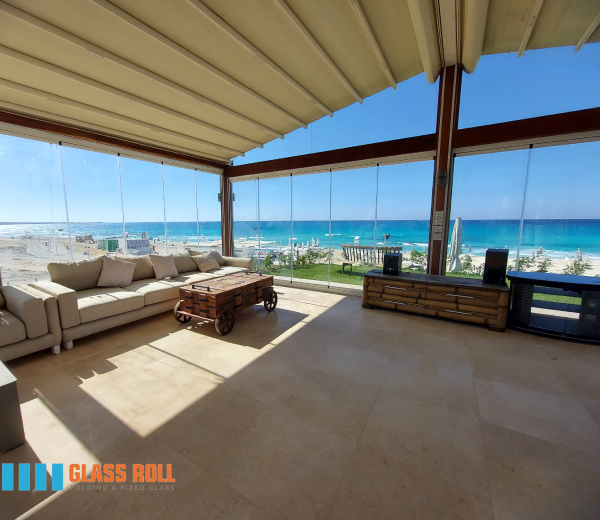Folding Glass Technology: Transforming Architecture and Design . folding glass door opening a living room to a patio. Folding glass technology has revolutionized the construction industry, offering a new realm of possibilities for architects, designers, and homeowners alike. This innovative innovation allows for the creation of flexible, adaptable spaces with aesthetically pleasing designs. In this article, we will explore the benefits, applications, and prospects of folding glass, highlighting its potential to transform the way we think about architecture and interior design. Versatility and Adaptability Folding glass enables the seamless integration of indoor and outdoor spaces, providing unparalleled versatility and adaptability. With the ability to partially or fully fold, it allows for easy passage of air and natural light, creating a bright and open atmosphere within buildings. Whether used for large doors, windows, or room dividers, folding glass offers high flexibility, enhancing privacy and facilitating proper ventilation. folding glass wall dividing a conference room into two smaller spaces. Enhanced Aesthetic Appeal Folding glass adds a touch of modernity and elegance to any structure. Its folding and stacking designs bring a unique and innovative element to interior and exterior spaces. With sleek lines and a seamless appearance when closed, folding glass elevates the visual appeal of buildings and creates a sense of sophistication. modern living room with a folding glass wall overlooking a panoramic view. Energy Efficiency and Sustainability One of the significant advantages of folding glass is its contribution to energy efficiency and sustainability. By harnessing natural light and ventilation, it reduces the reliance on artificial lighting and air conditioning systems, resulting in lower energy consumption. Additionally, folding glass can be manufactured using eco-friendly materials, further enhancing its sustainability credentials. Expanding Design Possibilities Folding glass opens endless design possibilities for architects and designers. Its versatility allows for creating unique and customized spaces, adapting to the specific needs and preferences of occupants. Whether it is a residential home, commercial building, or public facility, folding glass can be utilized to create visually stunning and functional designs that leave an impression. folding glass roof on a restaurant patio Increased Natural Connection Incorporating folding glass into architectural designs fosters a stronger connection between inhabitants and their surroundings. By seamlessly blending indoor and outdoor spaces, it encourages a closer relationship with nature, promoting well-being and a sense of harmony with the environment. family enjoying a meal on a folding glass patio. Future Innovations and Advancements The future of folding glass is promising, with ongoing research and development to further enhance its capabilities. Innovations in manufacturing techniques, durability, and safety measures will address the current challenges and continue to push the boundaries of what folding glass can achieve. As technology progresses, we can expect to see even more innovative applications of folding glass in various industries. .. folding glass wall with integrated sensors and smart home technology Conclusion Folding glass technology. represents a significant advancement in architecture and design. Its versatility, aesthetic appeal, and energy-efficient properties make it a sought-after solution for creating dynamic, sustainable, and visually stunning spaces. As the industry continues to invest in research and development, folding glass will undoubtedly play a pivotal role in shaping the future of innovative architecture.
Primary Navigation Menu





